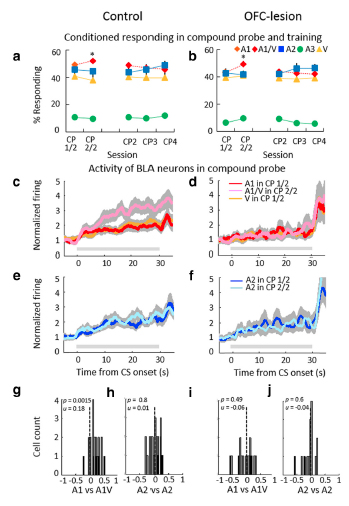Featured Paper of the Month – May 2016
Takahashi, Yuji K; Chang, Chun Yun; Lucantonio, Federica; Haney, Richard Z; Berg, Benjamin A; Yau, Hau-Jie; Bonci, Antonello; Schoenbaum, Geoffrey
Neural estimates of imagined outcomes in the orbitofrontal cortex drive behavior and learning. Journal Article
In: Neuron, vol. 80, no. 2, pp. 507–518, 2013, ISSN: 1097-4199 (Electronic); 0896-6273 (Linking).
@article{Takahashi0000,
title = {Neural estimates of imagined outcomes in the orbitofrontal cortex drive behavior and learning.},
author = {Yuji K Takahashi and Chun Yun Chang and Federica Lucantonio and Richard Z Haney and Benjamin A Berg and Hau-Jie Yau and Antonello Bonci and Geoffrey Schoenbaum},
url = {https://www.ncbi.nlm.nih.gov/pubmed/24139047},
doi = {10.1016/j.neuron.2013.08.008},
issn = {1097-4199 (Electronic); 0896-6273 (Linking)},
year = {2013},
date = {2013-10-16},
journal = {Neuron},
volume = {80},
number = {2},
pages = {507--518},
address = {National Institute on Drug Abuse Intramural Research Program, Cellular Neurobiology Research Branch, Behavioral Neurophysiology Research Section, Baltimore, MD 21224, USA. Electronic address: yuji.takahashi@nih.gov.},
abstract = {Imagination, defined as the ability to interpret reality in ways that diverge from past experience, is fundamental to adaptive behavior. This can be seen at a simple level in our capacity to predict novel outcomes in new situations. The ability to anticipate outcomes never before received can also influence learning if those imagined outcomes are not received. The orbitofrontal cortex is a key candidate for where the process of imagining likely outcomes occurs; however, its precise role in generating these estimates and applying them to learning remain open questions. Here we address these questions by showing that single-unit activity in the orbitofrontal cortex reflects novel outcome estimates. The strength of these neural correlates predicted both behavior and learning, learning that was abolished by temporally specific inhibition of orbitofrontal neurons. These results are consistent with the proposal that the orbitofrontal cortex is critical for integrating information to imagine future outcomes.},
keywords = {},
pubstate = {published},
tppubtype = {article}
}
Imagination, defined as the ability to interpret reality in ways that diverge from past experience, is fundamental to adaptive behavior. This can be seen at a simple level in our capacity to predict novel outcomes in new situations. The ability to anticipate outcomes never before received can also influence learning if those imagined outcomes are not received. The orbitofrontal cortex is a key candidate for where the process of imagining likely outcomes occurs; however, its precise role in generating these estimates and applying them to learning remain open questions. Here we address these questions by showing that single-unit activity in the orbitofrontal cortex reflects novel outcome estimates. The strength of these neural correlates predicted both behavior and learning, learning that was abolished by temporally specific inhibition of orbitofrontal neurons. These results are consistent with the proposal that the orbitofrontal cortex is critical for integrating information to imagine future outcomes.

